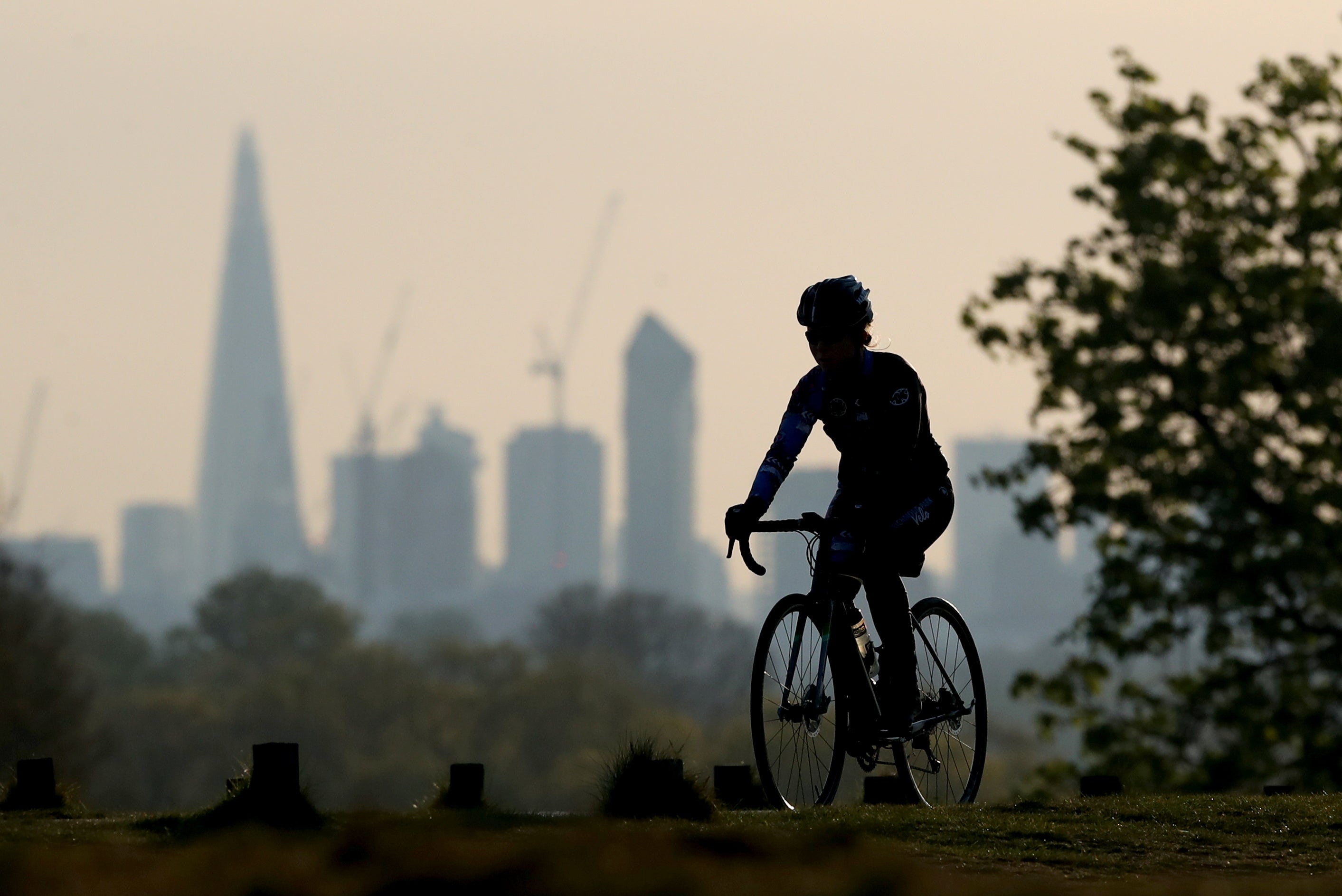Cities like London and Paris are surviving the pandemic – but deep issues remain
For those who are thinking of leaving London, quality of life is the number one reason, followed closely by affordability, writes Jack Brown


It’s been a tough time for central London, but signs of life are beginning to re-emerge. This week, city centre footfall, sales in Pret a Manger and Transport for London ridership all saw increases. This is surely encouraging news.
Images of ghost town-like, tumbleweed-ravaged city centres have been a very visible sign of the pandemic’s effects on urban life. With office workers no longer making their daily commutes, and hospitality, live entertainment and tourism placed on ice during successive lockdowns, city centres have been eerily quiet.
It is not just the city centre. It has been a tough time for cities in general. With proximity to others an essential part of urban life, and remote working increasing during the pandemic, we have seen a wave of commentary on individuals leaving the city for a more comfortable, affordable rural or suburban life.
But new research from the Policy Institute at King’s College London, Université de Paris and Ipsos MORI reveals that there are surprising grounds for optimism. As part of a new partnership between the two universities, this project has surveyed residents of both Greater London and the comparable Greater Paris or “Grand Paris” region, on the eve of the pandemic in 2019 and again in 2021. We now have a snapshot of how the pandemic has affected the two leading global cities – and there is reason to believe that reports of the “death of the city” have been greatly exaggerated.
It was a pleasant surprise to discover that, despite successive lockdowns keeping residents in and close to their homes against their will, satisfaction with local areas has held steady in both London and Paris. Even more so to find that satisfaction with local services has actually increased. Just because people are not travelling to their city centres, it doesn’t mean they want to leave their cities.
Whilst varying estimates exist of how many Londoners have left the city during the pandemic, neither today’s Londoners nor Parisians have become significantly more likely to say that they are planning to leave their cities in the next five years. Of those who are thinking of leaving, just one in 20 cite the fear of the current or potential future pandemics as a reason. Over the two years of the pandemic, it seems that city living has not lost its appeal.
There is also remarkable optimism about the two cities’ ability to bounce back from the pandemic, which is potentially good news for the city centre. Majorities in both capitals expect their cities to recover economically and socially eventually, with as many as a quarter of those in Greater London expecting a quick recovery. Both cities expect their hospitality and cultural offerings to improve in the next few years.
Despite their experiences during the pandemic, Londoners still think that proximity to good transport links is the single most important factor in making an area a good place to live in. For Parisians, this remains in the top three most important factors. This is despite the fact that more Londoners have been able to work from home at least some of the time than their counterparts in Paris. So, even with remote working as an option and with stable levels of satisfaction with their local areas, Londoners still want to be connected to the rest of their cities.
However, London does have some things to worry about. For those who are thinking of leaving, quality of life is the number one reason, followed closely by affordability. London is perceived to be a better place to start a career or a business, but at a price. The UK capital is seen as less affordable than Paris, with housing perhaps unsurprisingly a top concern.
Perhaps consequentially, Londoners see their city as a better place for the young and rich than for families, the elderly and the poor. The pandemic has not destroyed London’s appeal, but it may have made a dent, and the affordability of the capital is one area which could cause gradual harm if not addressed.
Despite optimism that both cities will recover overall, both Parisians and Londoners think that things like housing affordability, pollution levels and employment opportunities will get worse over the next few years. Concerns about climate change and air quality were extremely high in both cities, although there is support for policies that attempt to address this at a city-wide level.
Both cities also have specific issues facing some of their citizens. Women in London were significantly more likely to report having experienced street harassment by men than women in Paris. Parisians, for their part, were much less likely to agree that people from different ethnic, religious and social backgrounds got on well where they lived than Londoners. Parisians were also half as likely as Londoners to say that international immigration has been a positive thing for their city.
There are important areas for improvement in both capitals. Those responsible for governing these great global cities must get to grips with these great challenges, and there is certainly reason to try. Urban life has not quite lost its appeal just yet.
Dr Jack Brown is lecturer in London studies at King’s College London






Join our commenting forum
Join thought-provoking conversations, follow other Independent readers and see their replies
Comments